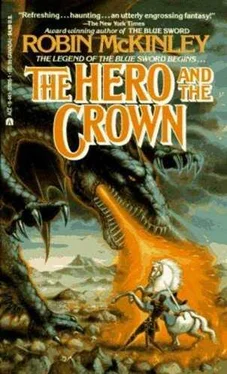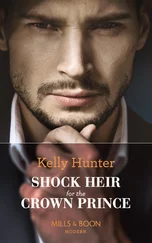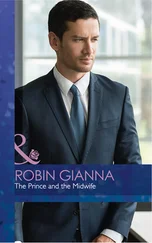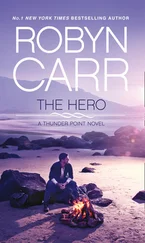Robin McKinley - The Hero And The Crown
Здесь есть возможность читать онлайн «Robin McKinley - The Hero And The Crown» весь текст электронной книги совершенно бесплатно (целиком полную версию без сокращений). В некоторых случаях можно слушать аудио, скачать через торрент в формате fb2 и присутствует краткое содержание. Год выпуска: 1984, Жанр: Фэнтези, на английском языке. Описание произведения, (предисловие) а так же отзывы посетителей доступны на портале библиотеки ЛибКат.
- Название:The Hero And The Crown
- Автор:
- Жанр:
- Год:1984
- ISBN:нет данных
- Рейтинг книги:4 / 5. Голосов: 1
-
Избранное:Добавить в избранное
- Отзывы:
-
Ваша оценка:
- 80
- 1
- 2
- 3
- 4
- 5
The Hero And The Crown: краткое содержание, описание и аннотация
Предлагаем к чтению аннотацию, описание, краткое содержание или предисловие (зависит от того, что написал сам автор книги «The Hero And The Crown»). Если вы не нашли необходимую информацию о книге — напишите в комментариях, мы постараемся отыскать её.
But it is Aerin who rediscovers the old recipe for dragonfire-proof kenet, and when the army is called away to the other side of the country, it is she who, alone but for Talat, rides out to confront Maur, the Black Dragon, the last of the Great Dragons, for centuries thought dead.
Mythopoeic Fantasy Award for Adult Literature (nominee)
Newbery Medal
The Hero And The Crown — читать онлайн бесплатно полную книгу (весь текст) целиком
Ниже представлен текст книги, разбитый по страницам. Система сохранения места последней прочитанной страницы, позволяет с удобством читать онлайн бесплатно книгу «The Hero And The Crown», без необходимости каждый раз заново искать на чём Вы остановились. Поставьте закладку, и сможете в любой момент перейти на страницу, на которой закончили чтение.
Интервал:
Закладка:
“Hornmar,” she said, several days later, trying to sound indifferent, “do you suppose Talat’s leg really hurts him any more?”
Hornmar was polishing Kethtaz, Arlbeth’s young bay stallion, with a bit of soft cloth. There wasn’t a dust mote on the horse’s hide anywhere. Aerin looked at him with dislike: he was fit and shining and merry and useful, and she loved Talat. Hornmar looked at Arlbeth’s daughter thoughtfully. All of the sofor knew by now of the private friendship between her and the crippled stallion. He was glad for Talat and for Aerin both, for he knew more than she would have wished about what her life was like. He was also, deep down, a tiny bit envious; Kethtaz was a magnificent horse, but Talat had been a better. And Talat now turned away from his old friend with flattened ears.
“I imagine not much any more. But he’s gotten into the habit of favoring that leg, and the muscles are soft, and stiff too, from the scarring,” he said in a neutral voice. He buffed a few more inches of Kethtaz’s flank. “Talat is looking good, this season.” He glanced at Aerin and saw the blood rising in her face, and turned away again.
“Yes, he’s getting fat,” she said.
Kethtaz sighed and flicked his tail; Hornmar had tied it up so it wouldn’t slap him in the face. He worked his way round the stallion’s quarters and started the other side; Aerin was still leaning against the stable wall, watching. “Talat might come back a little more,” Hornmar said at last, cautiously. “He’d never be up, say, to a man’s weight again, though.”
“Oh,” said Aerin, still indifferent. Kethtaz had a black dapple on one shoulder; she rubbed it with a finger, and he turned his head around and poked her with his nose. She petted him for a moment, and then she quietly slipped away.
The next day she rode her crippled stallion. She brushed him first, and when she was done, she dropped the grooming things together in a pile. She ran a finger along one wide cheek; Talat, nothing loath for a little more attention, rested his nose against her stomach so she could stroke’ the other cheek with the other hand. After a moment she worked down his left side, and placed her hands on his withers and loins, and leaned on them. He was smaller than most of the royal war-horses, but still too tall for her to put much of her weight into her hands. He flicked his ears at her. “Well,” she said. She rested one hand on his shoulder and he followed her to a rock she had picked out for the purpose some days before. She stepped up on it, and he stood quietly as she slowly eased one leg over his back.
She was sitting on him. Nothing happened. Well, she said to herself crossly, what was supposed to happen? He was broken to saddle while I was still learning to walk. The first time.
Talat cocked his ears back toward her, his head bowed as if he felt the bit in his mouth again. She nudged him with her legs, and he walked away from the mounting stone: thunk-thunk-1hunk-drag. He was bigger than she expected, and her legs ached spanning a war-stallion’s broad back. For all that Talat had done nothing but stand in a field for over two years, the shoulders under her hands were hard with muscle.
She rode him every day after that. At first it was once around his field, starting and stopping at the mounting stone; then it was two and three times: thunk-thunk-thunk-drag, thunk-thunk-thunk-drag. He walked when she squeezed with her legs, and went right or left when she bumped him with the outside knee; and after a few tries he realized she meant him to stop when she dug her hipbones into his back. She ran her hands over the bad leg every day after she dismounted: there was no heat, no swelling, no tenderness. One day she banged the long ugly scar with her closed fist, said, “Very well, it really doesn’t hurt, I hope,” got back on him again and wrapped her legs around him till, his ears flicking surprise at her, he broke into a shuffling trot. He limped six steps and she let him stop. Tears pricked at her eyes, and she fed him mik-bars silently, and left early that day.
Nonetheless she returned the next afternoon, though she looked glum, and tried to pick up her book after she’d done grooming him. But he went so expectantly to the mounting stone and stood watching her that she sighed, and climbed on him again, and sent him forward with her legs. But he broke at once into the shuffling trot, and at the end of the six steps he did not stumble to a halt, but strode out a little more boldly; a quarter of the way around the field, halfway—Aerin sat into him and he obediently subsided into a walk, but his ears spoke to her: You see? It was that day that a small but terrible hope first bloomed in Aerin’s heart.
Chapter 5
AERIN WAS GOING to have to take part in Galanna’s wedding after all. The surka was indisputably wearing off—”It’s lasted this long, why couldn’t it have hung on just a little longer?” Aerin said irritably to Tor.
“It tried, I’m sure,” said Tor. “It just wasn’t expecting Galanna.”
Galanna had contrived to have the great event put off an extra half-year because, she said coyly, she wanted everything to be perfect, and in the time remaining it was not possible to drag a sufficient number of things up to meet that standard. Meanwhile Aerin had resignedly begun to take her old place in her father’s court; her presence was not a very necessary one, but her continued absence was noted, and the surka hadn’t killed her after all. “I wonder if I could at least convince her that I’m too woozy to carry a rod and a veil or throw flowers and sing. I could maybe get away with just standing with my father and looking pale and invalid. Probably. She can’t possibly want me around any more than I want to be around.”
“She should have thought more exactingly of the timing involved when she goaded you into eating the surka in the first place.”
Aerin laughed.
Tor said ruefully, “I almost wish I’d had the forethought to eat a tree myself.” Perlith had asked Tor to stand behind him at the ceremony. The first companion was supposed to hold a sola’s badge of rank during his wedding; but in this particular case there were some interesting politics going on. Perlith was required by tradition to ask the king and the first sola to stand by him for the ceremony, and the king and the first sola by tradition were required to accept the invitation. The first companion’s place was, as attendants go, the most important, but it was also the most attentive; the slang for the first companion’s position was rude, and referred to the companion’s location near his sola’s backside. Asking Tor to stand first companion was a token of Perlith’s unrivaled esteem for his first sola, as the first companion’s place should go to Perlith’s dearest friend. It would also be Perlith’s only chance ever to have the first sola waiting on him.
“You should drop the badge with a clatter just as the chant gets to the bit about family loyalty and the unending bliss of being a member of a family. Ugh,” said Aerin.
“Don’t tempt me,” Tor said.
Fortunately Galanna did not have her future husband’s sense of humor, and she was glad to excuse Aerin from participation on the grounds of the continuing unreliability of the first sol’s health. Galanna was incapable of plotting much of anything over a year in advance, and the surka incident had had nothing to do with the predictable approach of her wedding day. It had had to do with the loss of her eyelashes just when she knew Perlith had decided to offer for her—which offer had then had to be put off till they were long enough again for her to look up at him through them. (She had actually been weak enough to wonder if Aerin was Gifted after all, her timing in this case being no less than diabolical.) But it had occurred to her lately that it would be a boon to find a way to keep Aerin out of the ceremony itself, without giving visible public offense (and since the surka hadn’t killed her off, which, to give Galanna what little credit she deserves, she had not been attempting). Galanna understood as well as Perlith did why Tor had been asked, and would stand as first companion; but Tor was reliable, for all his disgusting sympathy for his youngest cousin. He believed in his first sola’s place as Aerin had no reason to believe in her place as first sol; and Aerin, if dragooned into performing some ceremonial role, would by fair means or foul mess things up. Nothing was going to spoil Galanna’s wedding day. She and Aerin understood each other very well when Aerin, formal and smiling, offered her apologies and regrets, and Galanna, formal and smiling, accepted them.
Читать дальшеИнтервал:
Закладка:
Похожие книги на «The Hero And The Crown»
Представляем Вашему вниманию похожие книги на «The Hero And The Crown» списком для выбора. Мы отобрали схожую по названию и смыслу литературу в надежде предоставить читателям больше вариантов отыскать новые, интересные, ещё непрочитанные произведения.
Обсуждение, отзывы о книге «The Hero And The Crown» и просто собственные мнения читателей. Оставьте ваши комментарии, напишите, что Вы думаете о произведении, его смысле или главных героях. Укажите что конкретно понравилось, а что нет, и почему Вы так считаете.












